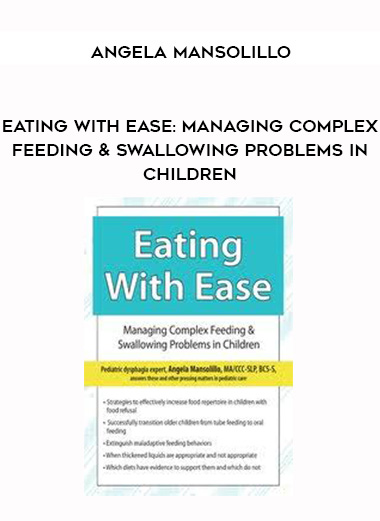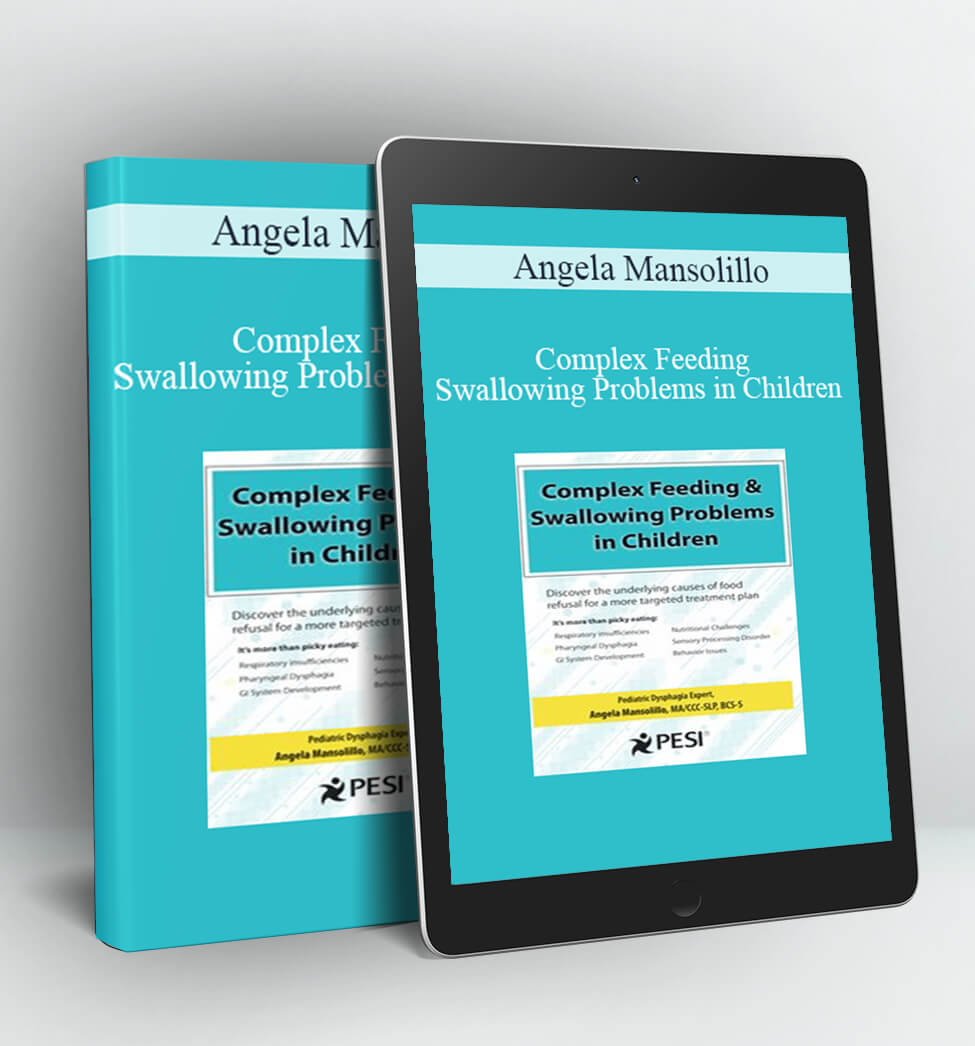EATING WITH EASE: MANAGING COMPLEX FEEDING & SWALLOWING PROBLEMS IN CHILDREN – ANGELA MANSOLILLO
Developing a Menu for Success
The causes of feeding and swallowing difficulties in children are always multifaceted, sometimes misdiagnosed, and often difficult to assess and treat appropriately. Respiratory difficulties, gastro-intestinal function, oral-motor skills, and behavioral issues are just a few of the elements that can influence feeding and swallowing, limit response to treatment, and result in significant health issues. To maximize effectiveness, clinicians must resist the temptation to assess and treat feeding and swallowing disorders in isolation; instead, they must develop management plans that take into account interactions between and among oral-motor, gastrointestinal, and respiratory systems.
This essential course describes complex feeding and swallowing disorders as they manifest themselves in children who have a variety of diagnoses. Attendees gain successful strategies for identification of the underlying etiology of the dysphagia. The evidence base for specific therapies, including oral motor techniques, behavioral interventions, nutritional interventions, and strategies for respiratory control, are evaluated. Participants leave this course armed with practical suggestions and tactics for improving function in these challenging children, as well as strong evidence to support those strategies.
- Examine the interplay between oral-motor, gastrointestinal, and respiratory systems and their impact on food refusal in children
- Identify the signs and symptoms of pharyngeal dysphagia in children
- Pinpoint advantages and challenges associated with dietary modifications and use of thickened liquids
- Discuss the rationale for various dietary recommendations currently being implemented with children
- Determine the pros and cons of various oral motor and sensory treatment approaches
- Develop a behavioral treatment plan to address problem feeding behaviors
WHAT IS FOOD REFUSAL AND WHEN IS IT A PROBLEM?
SPECIAL POPULATIONS
- Autism
- Down syndrome
- Cerebral Palsy
RESPIRATION
- Development of the respiratory system
- respiration vs. ventilation
- coordination of breathing and swallowing
- homeostasis
- pulmonary clearance mechanism
- Aspiration and aspiration pneumonia
- Assessment
- respiratory rate
- dyspnea
- breathing/swallowing coordination
- cough
- stress behaviors
- Interventions
- compensations
- positioning
- respiratory control
- exercise
PHARYNGEAL DYSPHAGIA
- Clinical assessment
- Instrumental assessment
- Interventions
- diet modification
- thick liquids pros/cons
- strategies and compensations
- oral hygiene
THE GI SYSTEM
- Development
- Disorders of the GI system
- reflux and reflux disease
- constipation
- eosinophilic esophagitis
- GI/Respiration inter-relationships
- Assessment
- Interventions
- dietary modifications
- medications
- positioning for sleep
INTERACTIVE CASE REVIEW
- Potential treatment strategies for real life scenarios
ORAL MOTOR
- Development of the oral motor system
- Postural stability
- Assessment
- Interventions
- the role of exercise
- muscle tone interventions
SENSORY ISSUES
- Development of the sensory system
- State regulation
- Taste and smell
- Assessment
- Interventions
BEHAVIOR
- Assessment
- Interventions
- the feeding environment
- hunger manipulation
- reinforcement
- shaping
- family education/involvement
- Transition from tube feeding to oral feeding
INTERACTIVE CASE REVIEW
- Potential treatment strategies for real life scenarios
NUTRITIONAL INTERVENTIONS
- Special diets
- Use of supplements
Tag: Eating with Ease: Managing Complex Feeding & Swallowing Problems in Children – Angela Mansolillo Review. Eating with Ease: Managing Complex Feeding & Swallowing Problems in Children – Angela Mans









